Blackberry Smoke talk rigs, roots and 'Roses
The Atlanta band on all things six-string
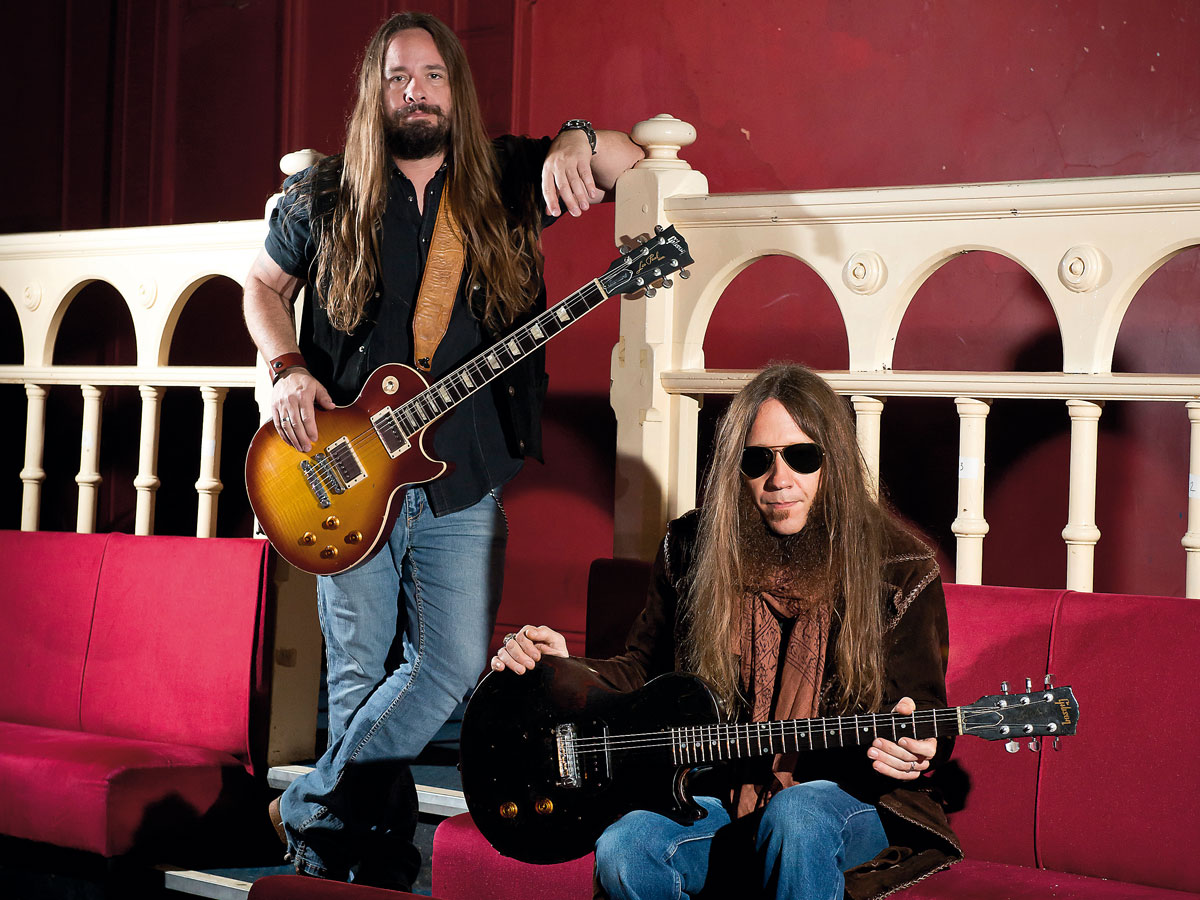
Introduction
Blackberry Smoke formed in 2000 and have spent most of the intervening time on either a tour bus or a stage.
It figures, then, that guitarists/vocalists Charlie Starr and Paul Jackson represent two of the finest players TG’s had the pleasure of recently witnessing: Just listen to this year’s live record Leave A Scar for evidence of that. You’ll find no liberal Live And Dangerous-style overdubs - just a rock band that has been playing together for 15 years and sound tighter than a duck’s butt.
"I picked a guitar up and started going for it. So I don’t know - it was just in me somewhere" - Paul Jackson
The Southern rockers embrace a wide variety of bluegrass, gospel and heavy-rock heroes, while politely shouldering comparisons to frequent tour partners the Allman Brothers Band and Lynyrd Skynyrd.
We sat down with Charlie and Paul to discuss the band’s beginnings, the future of Southern rock and how, with help from Brendan O’Brien, they may finally have an album worthy of their live reputation...
What were your roots, musically, and when did the guitar come into the picture?
Charlie: “My dad is a bluegrass guitar player and singer, so I banged around on his guitars. I don’t remember there not being a guitar in the room. Then, when I became 11 or 12 years old, none of my friends liked that. They didn’t want to hear [bluegrass icon] Bill Monroe. They liked Sabbath!
"So I bought an electric guitar from a friend for $25. It was a Heit Deluxe Mosrite copy, and he’d painted it like Eddie Van Halen’s [Frankenstrat] with all the stripes. It was really goofy.”
Paul: “I was adopted. My mom re-married, and my biological father’s family - I didn’t grow up anywhere near them - they were in Philadelphia, but they were all musicians. I picked a guitar up and started going for it. So I don’t know - it was just in me somewhere.”
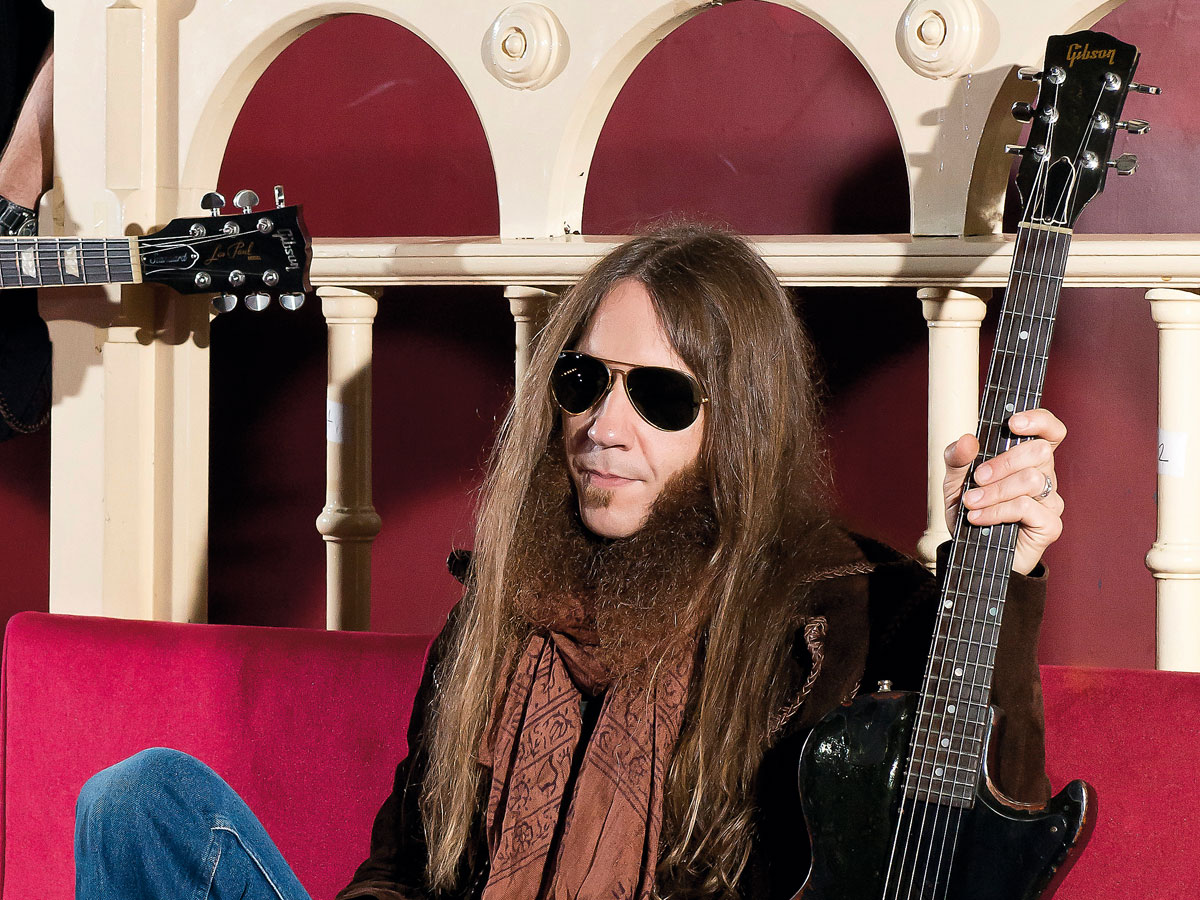
Sowing the Blackberry seeds
How did the idea for Blackberry Smoke come together?
Charlie: “I was playing in another band with Brit and Richard [Turner], our drummer and bass player. It was this singer-songwriter guy in Atlanta and we were his band, but he had an agenda that didn’t seem to include us.
"The three of us knew we had something that really clicked, and I’d written some songs that this guy didn’t wanna hear, so it was just a natural place for us to land. Those songs were Blackberry Smoke songs: Sanctified Woman, Testify...
"When it’s your name on the ticket and you look out and see a line of people around the club, you think ‘It’s starting to work’" - Charlie Starr
"Then I knew Paul from years ago, from a cover band. I knew he had a beautiful harmony vocal - which is very important in Blackberry Smoke, that bluegrass thing - and he was a great guitar player, so I called him and he came to Atlanta, and that was it.”
You describe your following as “organic.” Could you explain what you mean by that?
Charlie: “It means it’s not people that heard our music on the radio. It’s truly a word-of-mouth campaign; now with social media being what it is, that’s a way bigger mouth than it was in 1970 for the Allman Brothers, but while a tweet is a great way to spread the word, the proof is still in the pudding.
“We spent years playing bars, but then we would turn around and go and open a big show for Skynyrd, or ZZ Top or Zac Brown; but when it’s your name on the ticket and you look out and see a line of people around the club, you think, ‘It’s starting to work.’ Then it’s just trying to keep it fresh. The setlist changes every night, and that’s a good start, I think.”
You lay down your albums very quickly. 2012’s The Whippoorwill took only five days. Why is that?
Charlie: “The schedule didn’t permit otherwise at that point. We had a small window. I don’t think anyone involved was really sure whether we’d finish, and it just so happened that we managed to do it. It was a great studio, with great people, and we were very rehearsed on those songs. We got great sounds the first day, and that was it. It was a nice happy accident.”
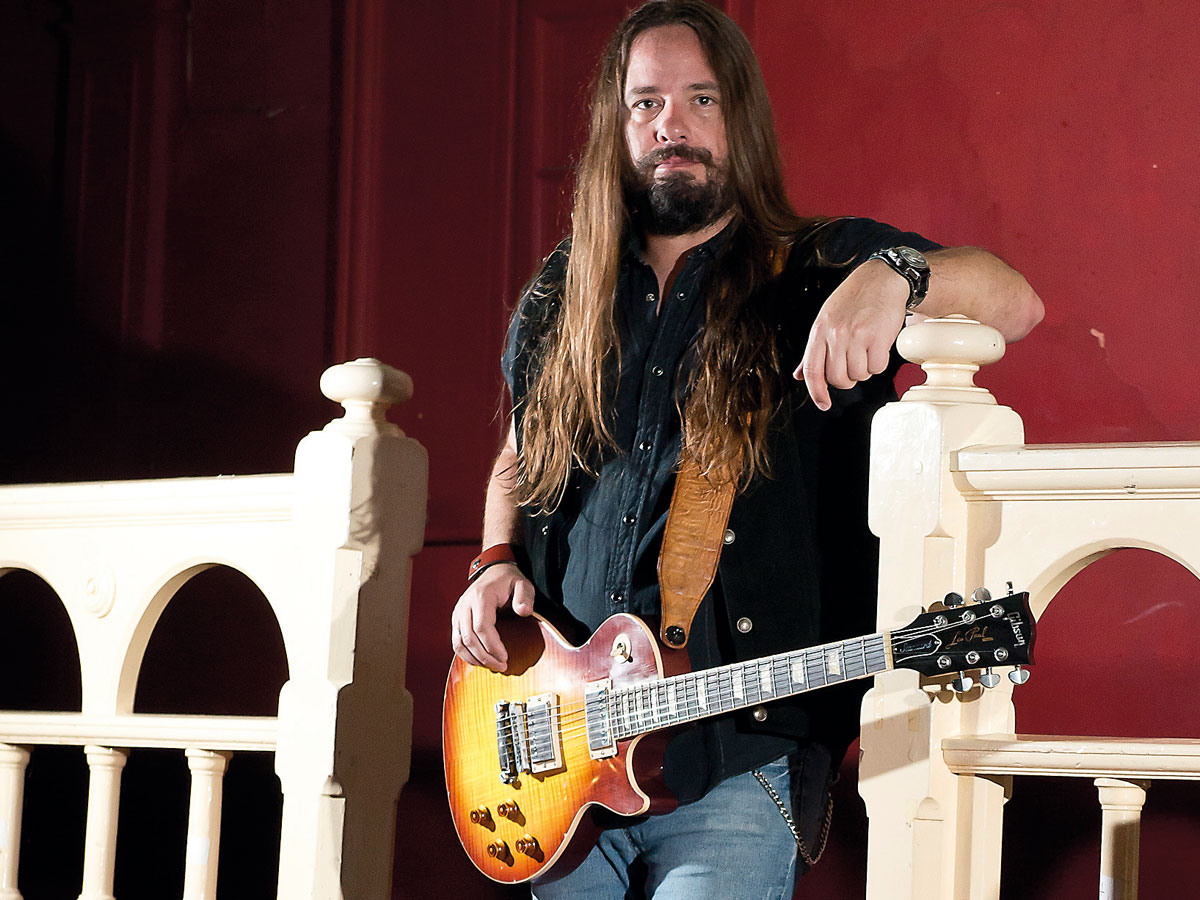
Holding All The Roses
What can you tell us about your new record?
Charlie: “It’s done! The projected release date is February 10th. The album is called Holding All The Roses, and [its namesake] on the album is probably the heaviest song we’ve ever recorded.
"We recorded in Atlanta, Georgia, at The Quarry Studio, and Henson Recording Studios in Los Angeles, which used to be A&M. It’s produced by Brendan O’Brien, and he was fantastic. He’s a legend: a great musician, a great producer. I think it’s our best-sounding record to date. We’re just over the moon about it.”
How did Brendan O’Brien come to be involved?
Charlie: “From the very beginning of the band, if we ever talked about being produced, his name was always the first name on the list. It was a pipe dream, really. He’s from Atlanta as well. He’s an Atlanta legend, plus he’s an incredible, incredible guitar player.
"Eventually, the way that the snowball builds, we were able to build ourselves a tall enough stool to stand on and eventually reach Brendan O’Brien! He came to a show in Los Angeles and hung out for a little while. Then I sent him some demos, and he said, ‘I’m in.'”
How did Brendan O’Brien help you as a guitarist?
Paul: “Brendan O’Brien is every bit the guitar player Charlie says he is, but it was about knowing you don’t have to stress. He brings a lot out of you and he got me in my comfort zone. He would give you little hints about what to do on certain parts, but still let us do our thing, you know? He didn’t mess with our sound, but if he’d have wanted to, I’d have been like, ‘Sure!’ You trust a cat like that.”
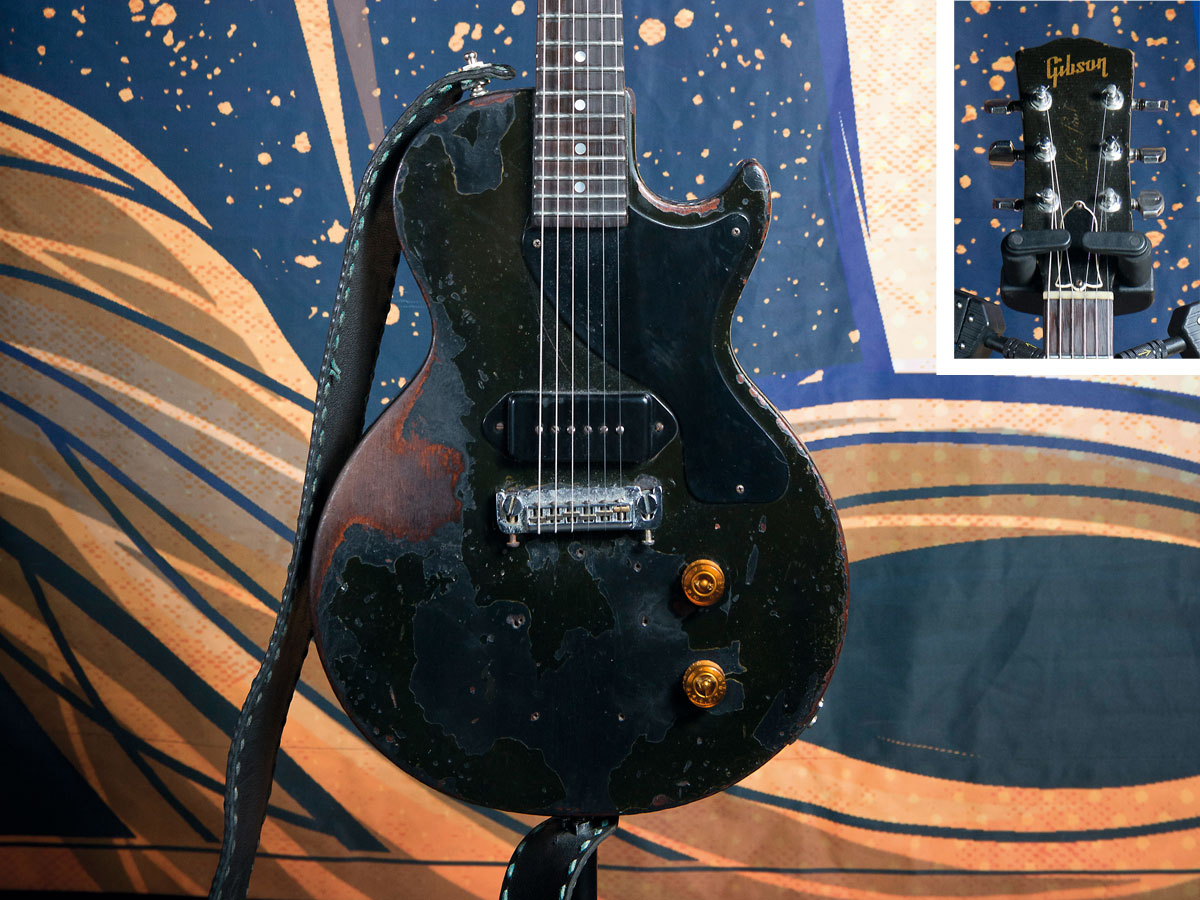
Charlie's baby
Speaking of your sound, what’s in your current tour rig?
Charlie: “My main guitar is a ’56 Les Paul Junior. I’ve had it a long time. It’s on every Blackberry Smoke record, pretty much every show, and it’s the heart of Blackberry Smoke. Amps-wise, I’m playing these Plexi clones built by a guy in North Carolina called Germino, Germino Amps. He’s a genius. He’s a student of the non-master volume Marshall amplifier, so that’s what they are, but they’re all hand-wired and made in the USA. I’ve been using those for a while.”
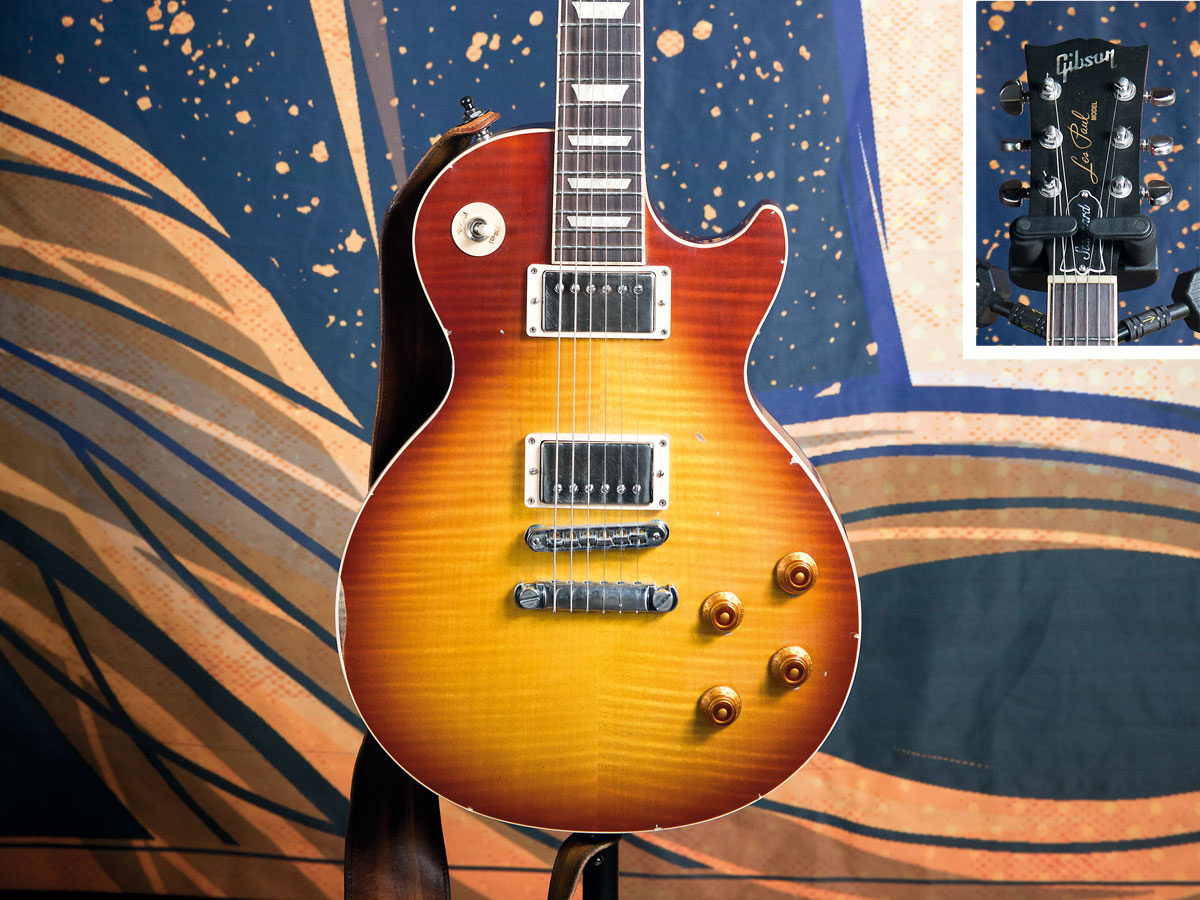
Paul's 'Paul
Paul: “I use mainly Les Pauls. I have a ’79 Les Paul that I use a lot, and a newer one that a friend of mine relic’d up. Then I have a Tele and a Strat that a guy put together for me. It’s simple stuff, nothing major. With the amp, I’m using an Orange Custom Shop 50. It’s hand-wired, and it’s just a great classic rock sound. It goes well with [Charlie’s] Germino, too.”
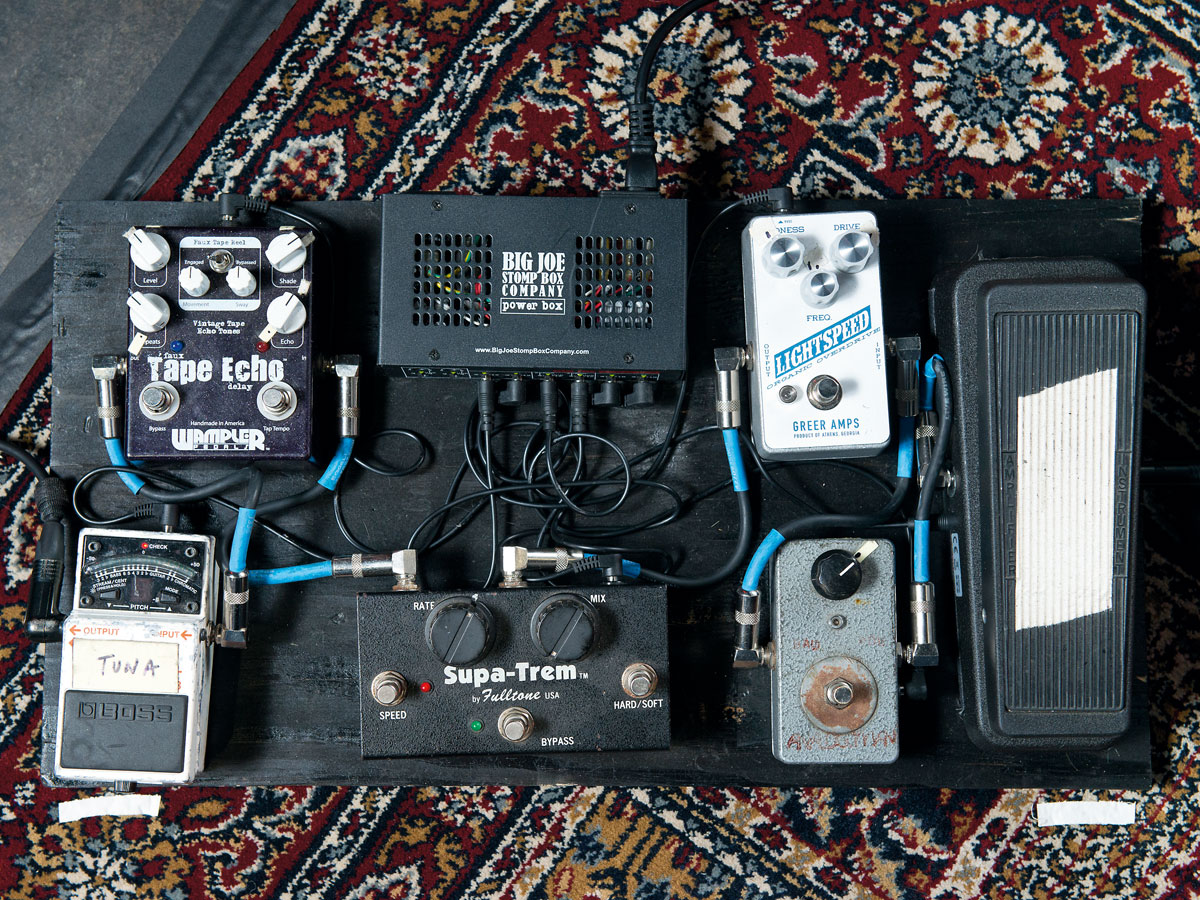
'Board in the USA
Do you use many effects?
Charlie: “I use more effects now than I ever have done, and it’s just because people have gotten so good at it! I always wanted an Echoplex, and I can’t afford one, but this company, Wampler, makes the Faux Tape Echo.
"To my ears, it sounds as close to the original product as I can get. Then there’s a company in Athens, Georgia, called Greer that makes great effects, and I’ve been using an Analog Man Bad Bob for a clean boost. It’s like a 30dB explosion! Then a Cry Baby wah.”
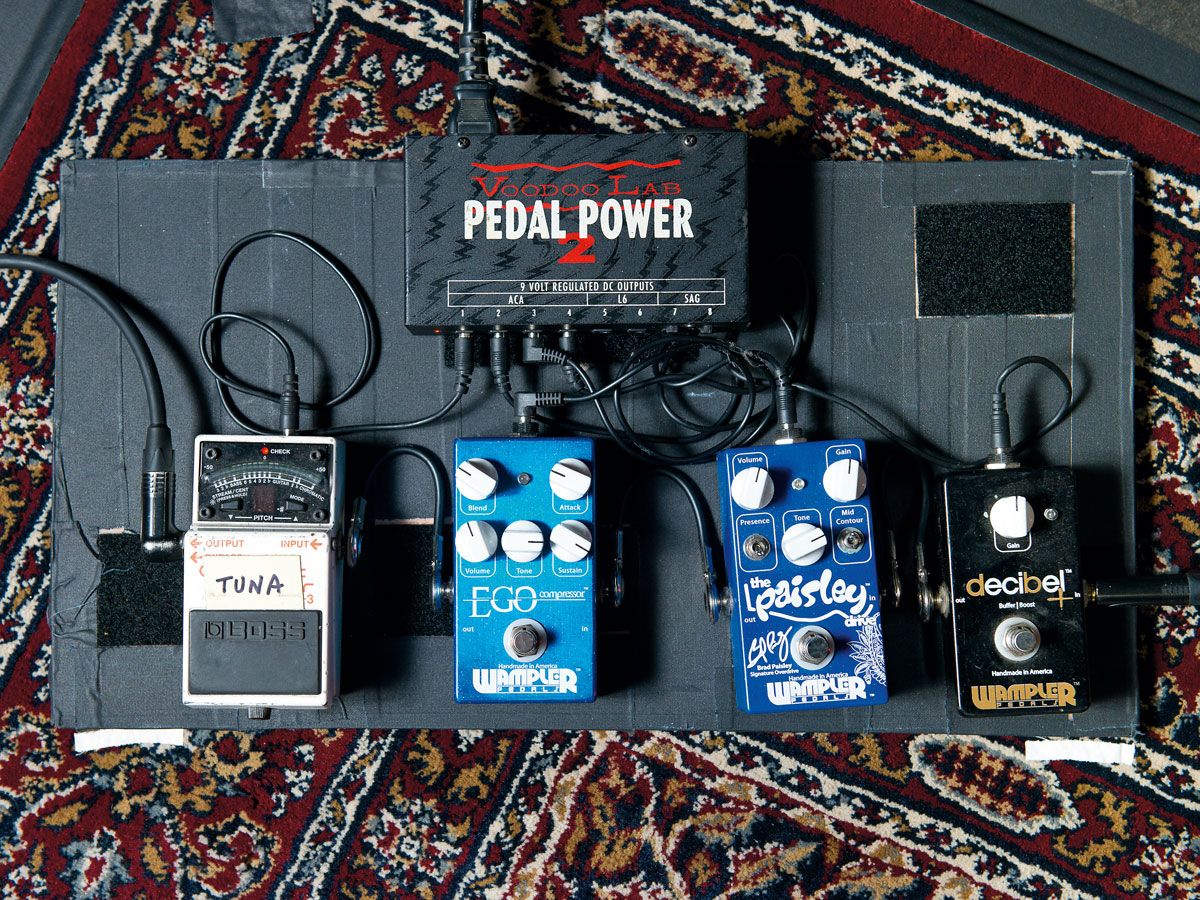
Paul's stompers
Paul: “I use the Wampler Decibel Plus pedal as a boost, the Brad Paisley overdrive pedal, a [Ego] compressor and then a Cry Baby.”
You seem to do very well in the UK. What do you think it is about Southern rock that appeals to audiences here?
Charlie: “I don’t really know. I guess it’s pretty simple! It’s not hard to dance to. It’s honest and familiar, possibly.”
What do your fans tell you?
Charlie: “A lot of people say we remind them of ’Skynyrd! Well, I’m joking, but the way a lot of people say it is that we remind them of ’Skynyrd but that we sound like ourselves - and that’s a great compliment, because we’re not a tribute band.”
Do you feel you could be the torch bearers for that sound?
Charlie: “Yeah, if that’s the way people feel, then that’s an honour. It’s not specifically what we set out to do. We’re just five guys playing music: two guitars, bass, keys, drums and vocals.
"There’s a way larger well of influences to draw from than just ’Skynyrd and the Allman Brothers, which we love dearly, but it’s so much more. I think it really boils down to where we come from.”
What’s your hope for the future of the band?
Charlie: “I hope that with this new album we can reach more people. That’s the goal with every album. We don’t speculate over airplay, because we never get it! So it’s really just more of the same: to continue to tour and build it.”
Matt is a freelance journalist who has spent the last decade interviewing musicians for the likes of Total Guitar, Guitarist, Guitar World, MusicRadar, NME.com, DJ Mag and Electronic Sound. In 2020, he launched CreativeMoney.co.uk, which aims to share the ideas that make creative lifestyles more sustainable. He plays guitar, but should not be allowed near your delay pedals.


